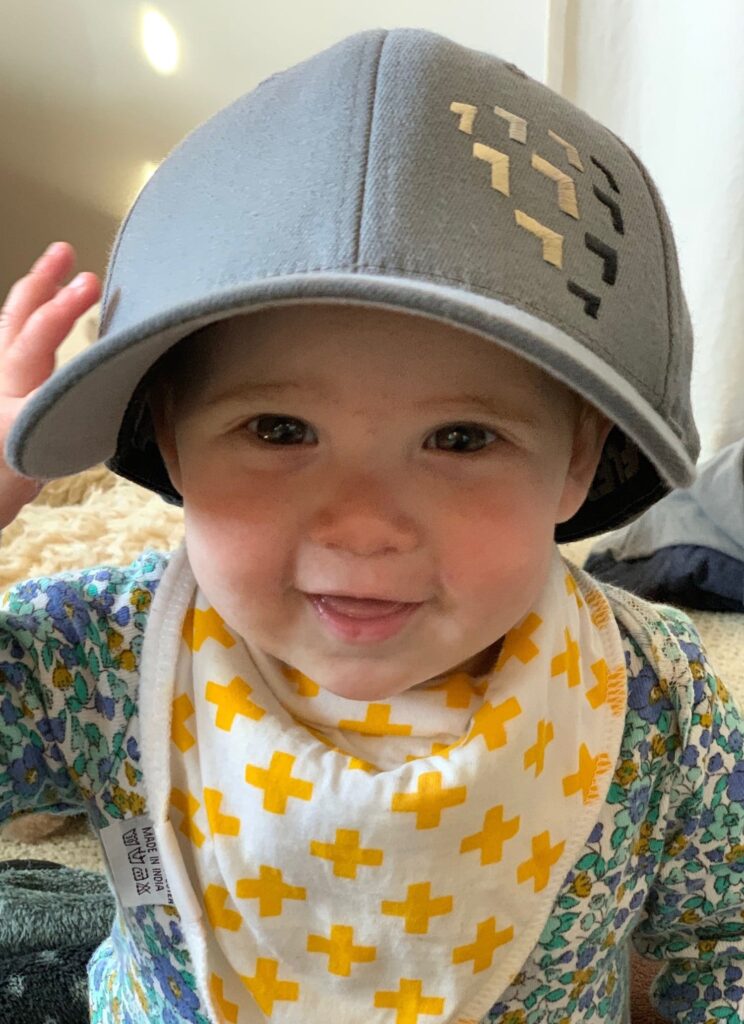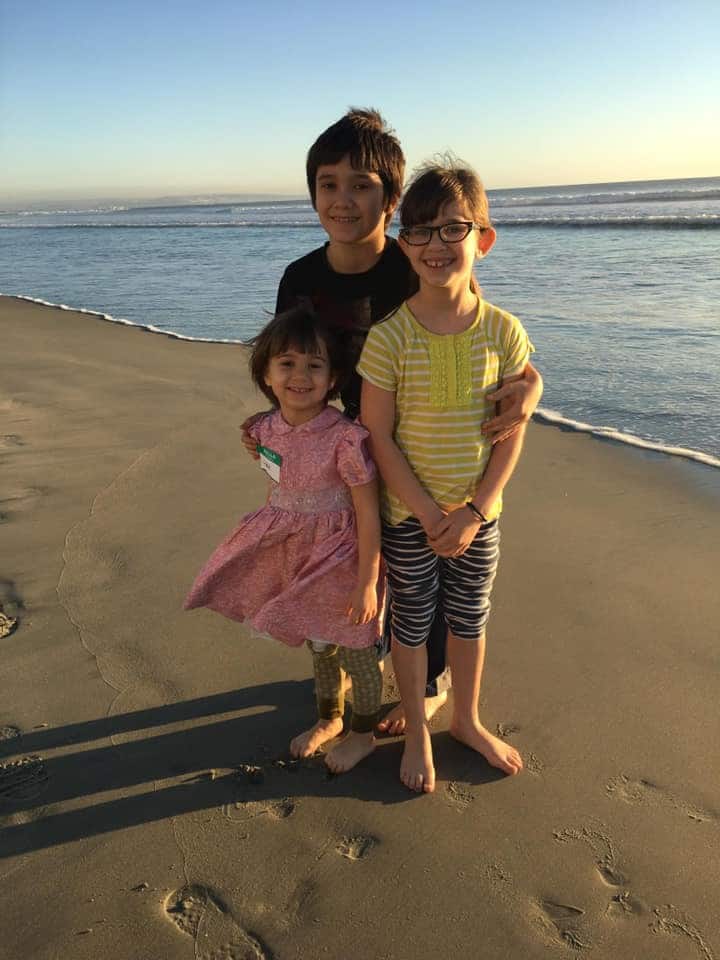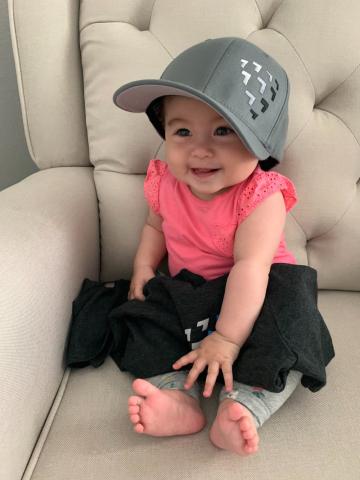Being a working parent is challenging. But is it tougher at a start-up? We sat down with three of our working-parent teammates at Shield AI to discuss the realities of parenting: What is it really like? How does start-up culture differ from other corporate?
The impression is that start-up life and parenting don’t go together. What is the reality you’ve found?
Michele:
Startups are undeniably hard work, but so is any other fulfilling career.
The team here is genuinely motivated by the mission. We put in the work because we want to. We are all contributing to something much bigger than ourselves and that is not an opportunity you come across every day.
What’s your overall view of Shield AI as a company with respect to parents and children?
Chris:
There are a lot of parents and a lot of kids. Our team is probably close to 50/50 parents and non-parents.
We’re a start-up, but the mentality is everybody respects one another. People understand if you need to take care of family concerns. I’ve had to leave work to pick up sick kids from daycare. There’s not any, “Oh there’s so much work to do, you can’t leave.” It’s more like, “Go, take care of it. I’ve got you covered.”
I was worried when I came to Shield AI from a larger organization, but it hasn’t been an issue at all. I can prioritize my family when it matters most.
Michele:
The environment and the people here really care about one another. So, there’s trust between teammates that you’re going to get your work done no matter what. Everyone here puts emphasis on taking care of yourself and taking care of your family, because those things really matter.
We know, Chris may leave early today, but he’s still going to meet that deadline. And I think that trust goes a long way in allowing you to have balance between work and your family.
Chris:
Taking that a step further, the team looks out for the team. So, in those situations, the team picked up some of the slack. Everyone looks out for each other.
How do you manage being a working parent? Is there a “typical” day?
Brad:
I usually have child care Tuesday through Thursday, but Mondays and Fridays are crazy for me. I’ll begin meetings with a headset on at 7:00am, get the kids up at 7:30am while I’m still on the meeting — hopefully on mute. Then I’m running around the kitchen making lunches and breakfast and all of that while being engaged with my meetings.
So Monday and Friday I’ll work while they’re at school and then go back to work in the evening if I have any energy left in my day. If not, I wake up at 4:00am or 5:00am the next morning so I can catch up. And that’s just the way I do it.
What tools do you use to stay organized?
Brad:
I love my Instapot. I’m a sucker for my kids, so I make all their lunches every morning. I do a lot of cooking on the weekends, so a lot of things are just ready to go. But Monday and Friday Instapots rule. You put everything in and you turn it on and you just let it go.
How is life different for you Michele as a new mom?
Michele:
Managing time has a whole new meaning now, and being present is even more important. My baby doesn’t really notice my presence as much yet, but I’m trying to develop good habits now. As long as she wakes up by 5:15am, I can say good morning for a bit, then I’m on my way. I try to work out a couple days a week in the morning, but typically want to get to the office quickly so that I can leave early and be there for a couple hours before bedtime.
Keeping to a schedule is the key to our success.
What’s your week like Chris?
Chris:
My wife and I are all about schedules — even before kids. Half the time I get to come in early and then I pick up the kids and then half of the time I drop off the kids in the morning and can stay at work a little later. I only stay a little later because we eat dinner at 6:30pm every night. Well, the kids eat at 6:30pm no matter what… if we aren’t ready, ours is more like 8:30pm or 9:00pm, because of how late my three year old goes to bed.

Other than Instapot, what else has been useful for you to balance your schedule?
Chris:
One thing we’ve found is to offload the things that we don’t love to do, like deep-cleaning the house or keeping up with the yard.
Brad:
Until the kids get old enough, then you get chores. That’s what we started.
What are some of the biggest challenges?
Brad:
Making them feel like you’re there all the time. Which means at night the phone goes away, it unplugs, the laptop stays off so dinner time is with them. And that’s important.
Chris:
We turn off all devices from when I pick up the kids to when they go to bed. I put it in a different room, because that’s the only way to really disconnect. But sometimes I’ll sneak in there if I think of something and Slack somebody real fast. But for the most part it’s digital off.
Michele:
I haven’t mastered the digital off thing yet. I definitely still blur the lines on that.
Brad:
You’ll notice when the kids start noticing it. There’s a point where they’re like, “Mom and Dad are on the phone all the time.”
Chris:
My oldest just started getting it a couple months ago and calling me out for it.
Has being a parent changed your career goals or outlook?
Michele:
My focus is different. I don’t have time to spare, so every minute that I’m awake is being used for something. It’s not that I wasted a lot of time before, but I had the luxury of it.
My goals certainly haven’t changed though. If anything, my career and life goals carry more weight now because I have a daughter to set a good example for. I want to show her the value of hard work and inspire her to pursue her dreams, especially when it does not come easy.
Chris:
I definitely shifted on how I prioritize. I pay closer attention to where I want my career to go so that I can prioritize the right things with the time I have to do work. It is all about efficiency and making the time for the deep work.
Brad:
I love my work. I’m a workaholic at heart, and so that’s a big challenge. Especially in a place like Shield AI where there’s so much work for us to do and so many exciting things to take on and accomplish.
I would say this: The one thing I would say that changed when I had kids, was my tolerance for nonsense at work went very down. Because I did not want to bring that toxicity from work back home. I did not want to bring that stress home.
And honestly, that’s one of the things that I’ve loved about this place. For as much work as there is to do here — and there’s a ton of work — it doesn’t feel stressful. It’s actually exciting work to do that is enriching me and I feel like I’m learning new things all the time.
My kids can tell that I’m totally jazzed when I talk about work. Whereas they can also tell you that they knew when I really hated being at work. It’s not just about how much time you’re spending at work, it’s about the environment you’re spending it in. Because that actually impacts your family.
Any advice you have to new parents?
Brad:
Yeah, it’s totally exhausting. But it’s totally worth it.

